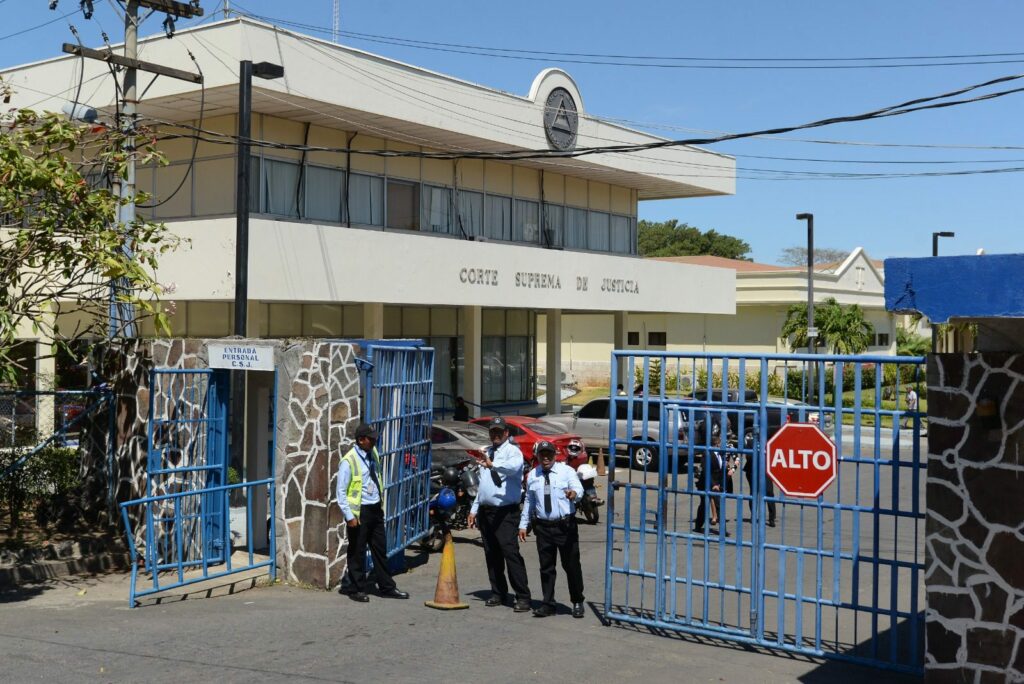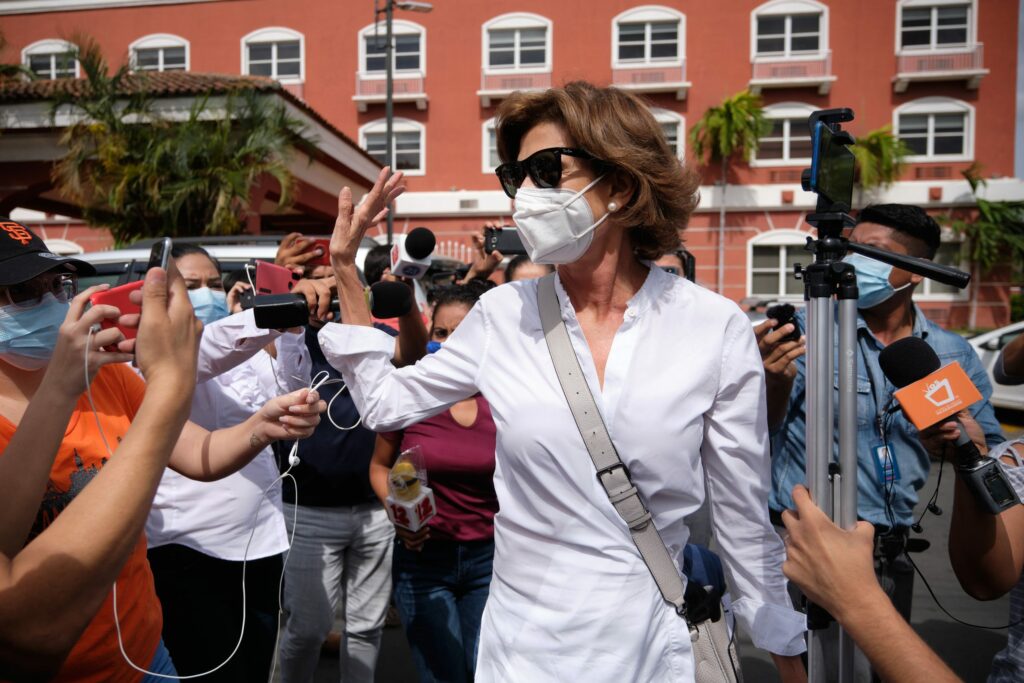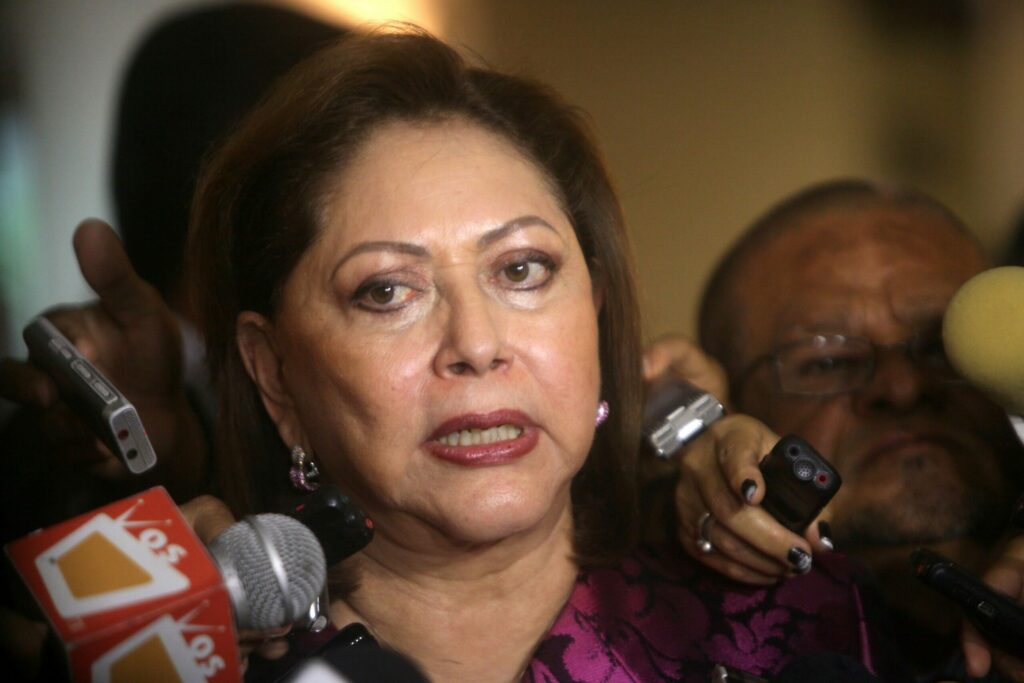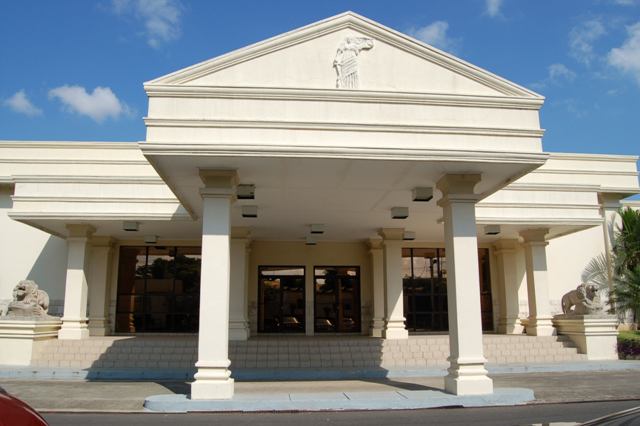Influence peddling, bribery, and nepotism have been the most prevalent and corrupt practices carried out with impunity in Nicaragua’s Judicial Branch in recent decades, according to the study “Judicial Corruption in Nicaragua: Influence Peddling and the Erosion of Due Process,” conducted by the Pro-Transparency and Anti-Corruption Observatory (OPTA) of Hagamos Democracia.
The study, which documents emblematic cases of corruption in Nicaragua since 2000, exposes how the Judicial Branch lost its autonomy and independence as a state power since the administration of former president Arnoldo Alemán, until it fully broke down under the Daniel Ortega and Rosario Murillo regime.
The complete submission of the Judicial Branch to the Ortega-Murillo regime was mainly achieved through the influence peddling by Ortega-aligned magistrates such as Rafael Solís, Juana Méndez, and Alba Luz Ramos, who facilitated the approval of unconstitutional laws and infiltrated loyal supporters and FSLN political secretaries into the Supreme Court to follow their orders.
Rafael Solís is currently persecuted by the Ortega regime due to his rebellion against the human rights violations perpetrated since the citizen protests of 2018, leading to his denationalization and confiscation of his assets by the regime.
Through these corrupt practices, the Observatory points out that the Judicial Branch became “a necessary instrument to ensure the power and authoritarianism of the Ortega-Murillo regime, both to favor their associates, officials, and loyal supporters with impunity, and to persecute, criminalize, and condemn their opponents and anyone who threatens to question their policies.”
In this way, a family network was built that not only benefited the Ortega-Murillo themselves but also operators, friends, and acquaintances of members of the Sandinista Front.
“The Great Family, as some workers often call the Judicial Branch, is today the most discredited institution of the Nicaraguan state,” notes the study.
Gradual erosion of the Judicial Branch

According to the study, the Judicial Branch independence was gradually affected by multiple reforms to the Political Constitution since 2009, when the Constitutional Chamber of the Supreme Court of Justice approved an appeal for Ortega’s unconstitutional re-election in the 2011 elections.
“The Constitution has been reformed several times to fit the regime’s interests. For this, the Ortega-Murillo regime has had the unconditional support of loyal party deputies and other political forces with common interests,” indicates the Observatory.
In addition to constitutional reforms, criminal and procedural reforms were implemented, allowing the Executive Branch’s interference and control over the Judicial Branch’s actions.
Among these is Law 854, the Law of Partial Reform of the Constitution of Nicaragua approved in 2014, which paved the way for re-election; and the packages of laws approved since 2020 to persecute and criminalize opponents of the regime, one of the most concerning being Law 1145, the Special Law that Regulates the Loss of Nicaraguan Nationality.
Right now, “the interference and direct control of the Executive in the actions and decisions of the Judicial Branch are increasingly noticeable, to the point of becoming an instrument for executing the dictatorship’s orders,” asserts the study.
The case of presidential candidates, in total impunity

One of the most recent cases documented by the Observatory regarding corruption in the Judicial Branch is that of the criminalized and imprisoned presidential candidates in 2021, prior to the presidential elections scheduled for November 2021.
“After the social unrest in April 2018, the Ortega-Murillo dictatorial regime launched a fierce persecution against its political adversaries, imprisoning, accusing, prosecuting, condemning, exiling, and denationalizing them. All these illegalities were done by the National Police, the Public Ministry, and the Judicial Branch,” the Observatory determines.
Among the illegal actions by the Judicial Branch are the Ortega-aligned judges and magistrates who approved the arbitrary detentions of five presidential pre-candidates carried out by the National Police, as well as the continuation of the investigations by the Police and the Prosecutor’s Office.
They were also responsible for violations of due process, such as the right to be informed of the charges, the right to appear voluntarily before the authority and be heard, the right to defense, the presumption of innocence, the right not to be deprived of liberty, among others.
The Judicial Branch’s corruption was more evident with the “illegal Deportation Sentence,” notes the Observatory. This sentence issued by the Managua Court of Appeals Criminal Chamber Number One declared 222 political prisoners “traitors to the homeland,” and denationalized and exiled them to the United States on February 9, 2023.
Among other cases documented by the study are officials and individuals close to the FSLN accused of bribery, illicit enrichment, influence peddling, embezzlement, and misappropriation of public funds.
“The cases described here constitute a small sample of the family network that has benefited individuals accused of committing crimes and acts of corruption, whose processes were clearly questioned due to serious irregularities, to ensure the impunity of the responsible parties,” it states.
Supreme Court suffers “The Great Purge”

The investigators highlight that while the Judicial Branch has been the right hand of the Ortega-Murillo regime for executing its corrupt practices, this institution has suffered “the great purge” since last year.
Since 2023, the National Police have intervened in the offices of magistrates, judges, and other officials who have been removed from their positions or dismissed. Now, political surveillance within this body has intensified.
“As a result, much of the judicial management has suffered a sort of paralysis, with workers reporting an overload of work, doubling their working hours, creating significant delay in judicial work, where users and the general population are the most affected,” the study concludes.





